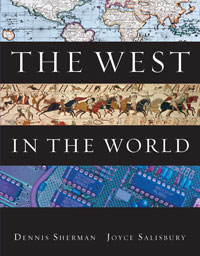
The West in the World, 4th Edition (Sherman)Chapter 20: Mass Politics and Imperial DominationChapter SummariesBetween 1870 and 1914, democratization brought more people into political life, while increased access to public education and popular journalism kept them more informed. As a result, politicians found it necessary to pay greater attention to popular opinion and to seek popular support, for example by appealing to voters through political campaigns or nationalism. Some groups previously left out of the political process, however, turned to ideologies at the extreme ends of the political spectrum, going beyond liberalism and conservatism. Meanwhile, many Europeans decided to emigrate as one way to deal with the social and economic pressures of European society, embarking on a wave of migration throughout the globe. Some also participated in the new imperialism, which was often motivated by nationalist and economic concerns, and made claims on territories outside of Europe, especially in Africa and Asia. In the years before 1914, Western societies clearly felt the strain of international competition, the social changes brought by industrialization, and increased demands for political participation. |  |















